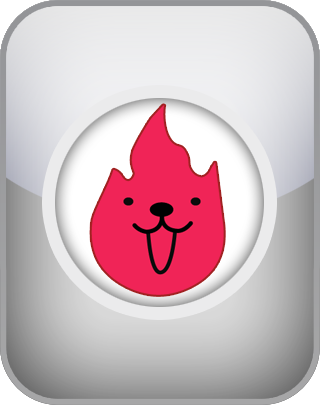Elemental Personality Test
The Elemental Personality Test is a lighthearted and “just for fun” test that has proven popular on the internet. It originated in Taiwan and uses a fun, happy-go-lucky approach to personality.
What is your Elemental Personality? To take the test, indicate your answers below.
Question 1 of 16
I prefer keeping my options open to having a plan set in place.
| Disagree | Agree |
NEXT
The IDRlabs Elemental Personality Test was created by IDRlabs, inspired by the Innate Personality Traits Test by the Taiwan Design Expo.
Unveiling Your Inner You: A Look at the Innate Personality Traits Test and Beyond
The world of personality assessments is vast, with new contenders emerging all the time. One recent addition is the Innate Personality Traits Test, hailing from the Taiwan Design Expo. This test promises a unique approach, ditching the standard multiple-choice format for a more engaging, story-driven experience. But before diving headfirst, let's explore its depths and consider its place amongst established personality frameworks.
The Enthralling Narrative Approach
The Innate Personality Traits Test takes you on a captivating journey. Instead of dry questions, it presents you with a series of scenarios. At each juncture, you're presented with two distinct choices that supposedly reveal your innate tendencies. Perhaps you're on a train, unsure of your destination. Do you embrace the unknown and enjoy the ride, or consult the map and take control? These seemingly simple decisions, according to the test, hold the key to unlocking your personality.
Beyond the Narrative: Unveiling the Big 5?
While the test doesn't explicitly mention them, experts believe it likely taps into the Big 5 personality model, also known as OCEAN. This widely recognized framework categorizes personality into five core dimensions:
- Openness to Experience (O): This dimension reflects your curiosity, imagination, and willingness to try new things. Your scenario choices might reveal if you're drawn to novelty (high openness) or prefer routine (low openness).
- Conscientiousness (C): This dimension reflects your organization, discipline, and goal-oriented nature. Choices might unveil if you're a meticulous planner (high conscientiousness) or someone who thrives on spontaneity (low conscientiousness).
- Extraversion (E): This dimension reflects your need for social interaction and stimulation. Scenarios could assess if you're energized by being around people (high extraversion) or prefer solitude (low extraversion).
- Agreeableness (A): This dimension reflects your cooperativeness, empathy, and desire to get along with others. Choices might indicate if you prioritize harmony and compromise (high agreeableness) or value assertiveness and independence (low agreeableness).
- Neuroticism (N): This dimension reflects your tendency to experience negative emotions like anxiety and stress. The test might assess your emotional resilience (low neuroticism) or vulnerability to stress (high neuroticism).
A Fun Exploration, Not a Definitive Answer
While the narrative format is engaging, it's crucial to recognize the limitations. The test's development and scientific validation haven't been widely documented. This means the accuracy of its interpretations remains unconfirmed. Additionally, personality is complex and nuanced. A single test, regardless of format, can't capture its entirety.
Considering Established Frameworks
If you seek a more established approach, consider exploring tests based on the Big 5 model itself. These well-researched assessments provide a deeper dive into each dimension, offering a more comprehensive personality profile. Another widely used framework is the Myers-Briggs Type Indicator (MBTI). This categorizes personalities into 16 distinct types based on preferences in four areas: Extraversion vs. Introversion, Sensing vs. Intuition, Thinking vs. Feeling, and Judging vs. Perceiving.
The Road to Self-Discovery
Ultimately, the Innate Personality Traits Test can be a fun springboard for self-exploration. Its engaging format can spark curiosity and initiate conversations about your personality. However, it's important to view the results as starting points, not definitive pronouncements.
For a more in-depth exploration, consider established frameworks like the Big 5 or MBTI. Remember, personality is multifaceted and ever-evolving. Embrace these assessments as tools for self-discovery, not rigid definitions. By delving into different frameworks and engaging in introspection, you can gain a richer understanding of the unique and wonderful person you are.
Free online quizzes such as the present test do not provide professional assessments or recommendations of any kind; the test is provided entirely “as-is.” For more information about any of our online tests and quizzes, please consult our Terms of Service.

